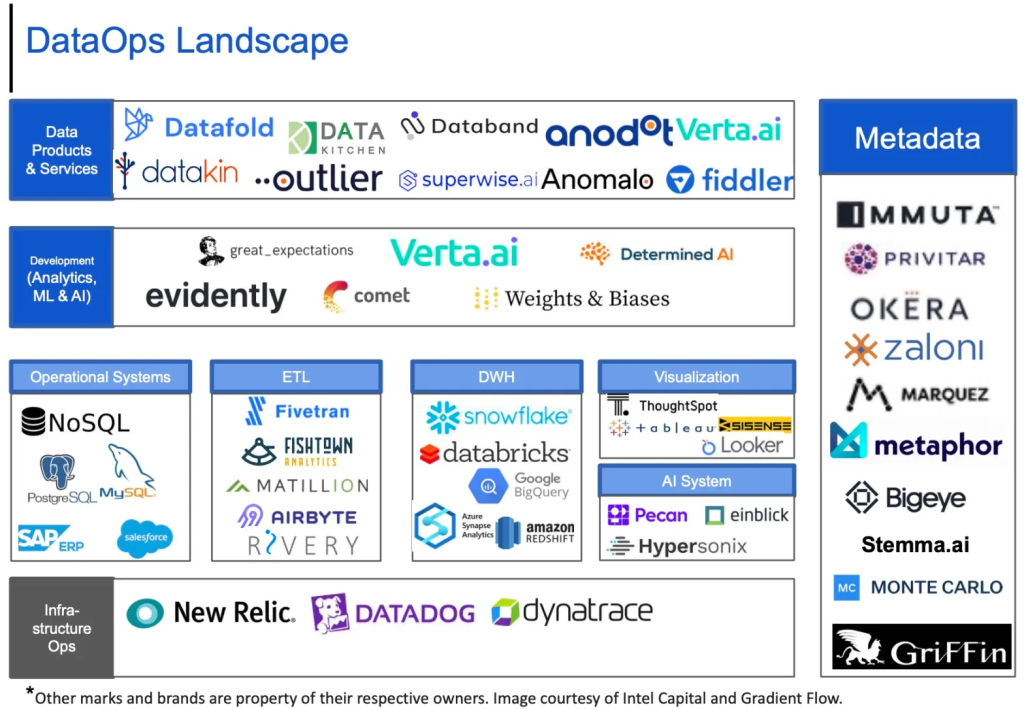
Are you tired of hearing about DevOps? Do you feel left out of the cool kids’ club because you don’t know what it is? Well, buckle up, buttercup, because now there’s a new buzzword in town – DataOps! But what the heck is it, and why should you care?
Let’s Talk About DevOps First
Before we dive into the world of DataOps, let’s take a quick detour and talk about its predecessor, DevOps. DevOps is a software development methodology that emphasizes collaboration and communication between development and operations teams. The goal is to streamline the software development lifecycle and improve the speed and quality of software delivery.
DevOps is all about breaking down silos and creating a culture of collaboration and continuous improvement. It involves a lot of automation, such as automated testing and deployment, as well as a focus on monitoring and feedback loops.
So What is DataOps?
Now that we’ve got DevOps out of the way, let’s talk about DataOps. In a nutshell, DataOps is the application of DevOps principles to data management. It’s all about streamlining the data pipeline, from ingestion to analysis, and making it more efficient, reliable, and scalable.
DataOps is particularly important in today’s world, where data is king. Organizations are collecting more data than ever before, and they need to be able to manage and analyze it quickly and effectively in order to stay ahead of the competition.
The Benefits of DataOps
So why should you care about DataOps? Well, here are just a few of the benefits:
- Increased efficiency: By automating many of the manual tasks involved in data management, DataOps can help teams work more efficiently and effectively.
- Improved data quality: By creating a more streamlined and standardized data pipeline, DataOps can help ensure that data is accurate and consistent.
- Faster time to insights: DataOps can help accelerate the time it takes to get from raw data to meaningful insights, giving organizations a competitive edge.
- Greater agility: By breaking down silos and creating a culture of collaboration, DataOps can help organizations respond more quickly to changing business needs.
How Does DataOps Work?
So how does DataOps actually work? Well, it’s all about creating a data pipeline that is efficient, reliable, and scalable. This involves a number of different components, including:
- Data ingestion: This is the process of bringing data into the system. It may involve connecting to various data sources, such as databases, APIs, or streaming platforms.
- Data processing: This is where the data is cleaned, transformed, and prepared for analysis. This may involve data wrangling, ETL (extract, transform, load), or other data manipulation techniques.
- Data storage: This is where the data is stored, either temporarily or permanently. It may involve various types of databases, such as relational, NoSQL, or data lakes.
- Data analysis: This is where the data is analyzed to derive insights. It may involve various types of analytics, such as descriptive, diagnostic, predictive, or prescriptive analytics.
- Data visualization: This is where the insights are presented in a visual format, such as charts, graphs, or dashboards.
The Role of DataOps Tools
Of course, all of this requires some pretty sophisticated tools and technologies. There are a number of different DataOps tools on the market today, each designed to help with different parts of the data pipeline. Some examples include:

- Apache NiFi: A data integration tool that allows you to automate the flow of data between systems.
- Databricks: A data analytics platform that allows you to analyze large amounts of data using Apache Spark.
- Snowflake: A cloud-based data warehousing platform that allows you to store and analyze large amounts of data.
- Tableau: A data visualization tool that allows you to create interactive dashboards and reports.
Wrapping Up
So there you have it – a whirlwind tour of the world of DataOps! Hopefully, you now have a better understanding of what it is, why it’s important, and how it works. Remember, DataOps is all about streamlining the data pipeline and making it more efficient, reliable, and scalable. With the right tools and processes in place, you can take your data management to the next level and gain a competitive edge in today’s data-driven world.